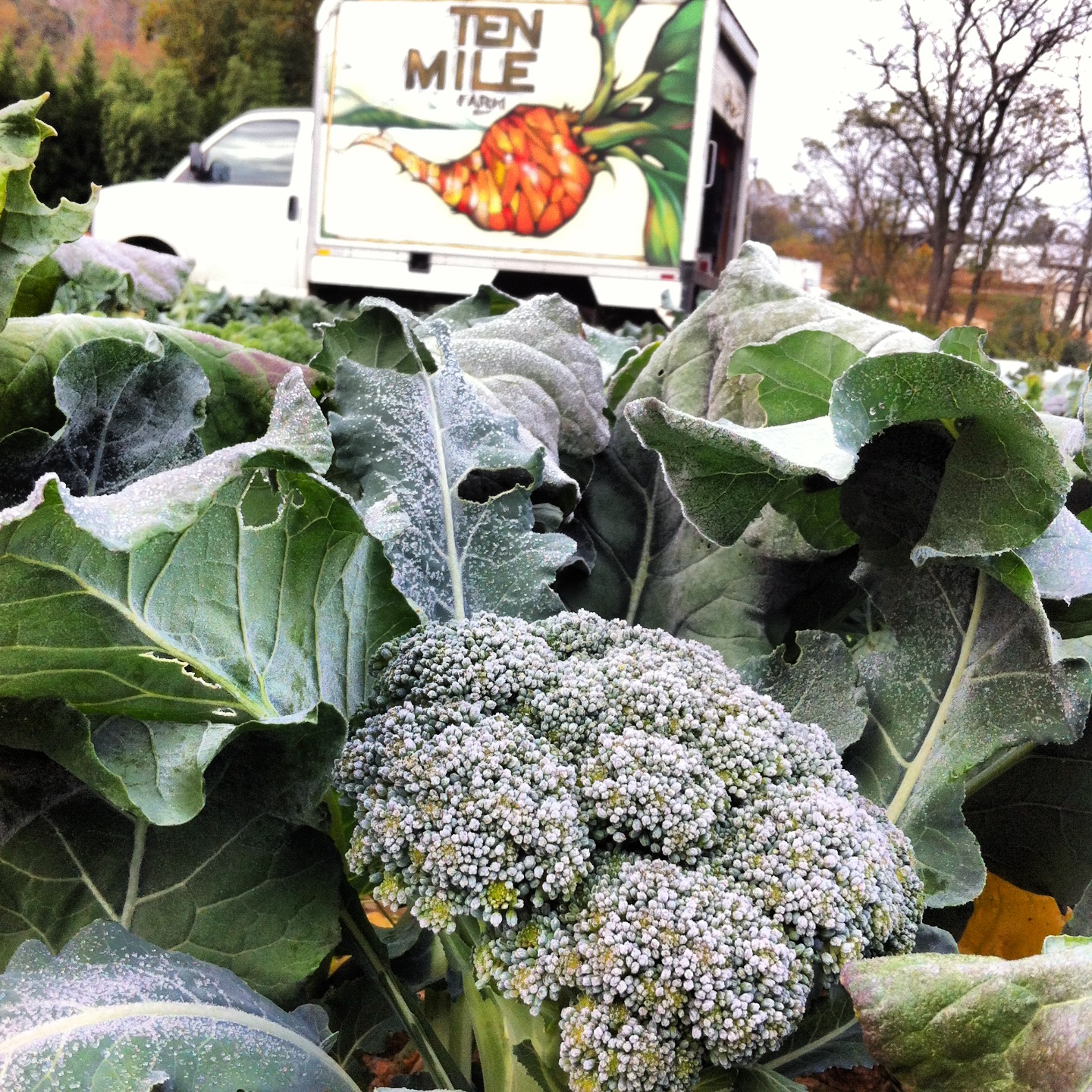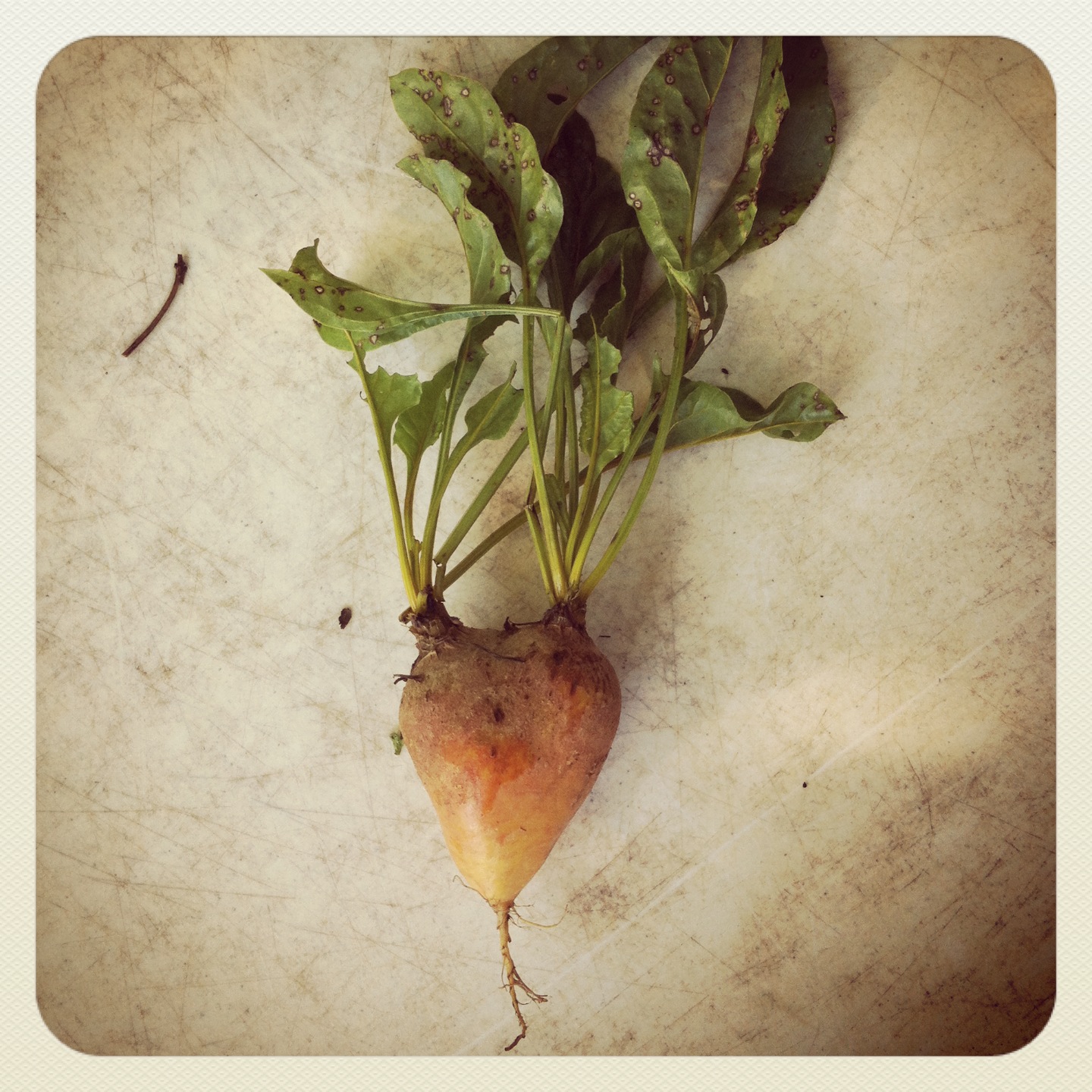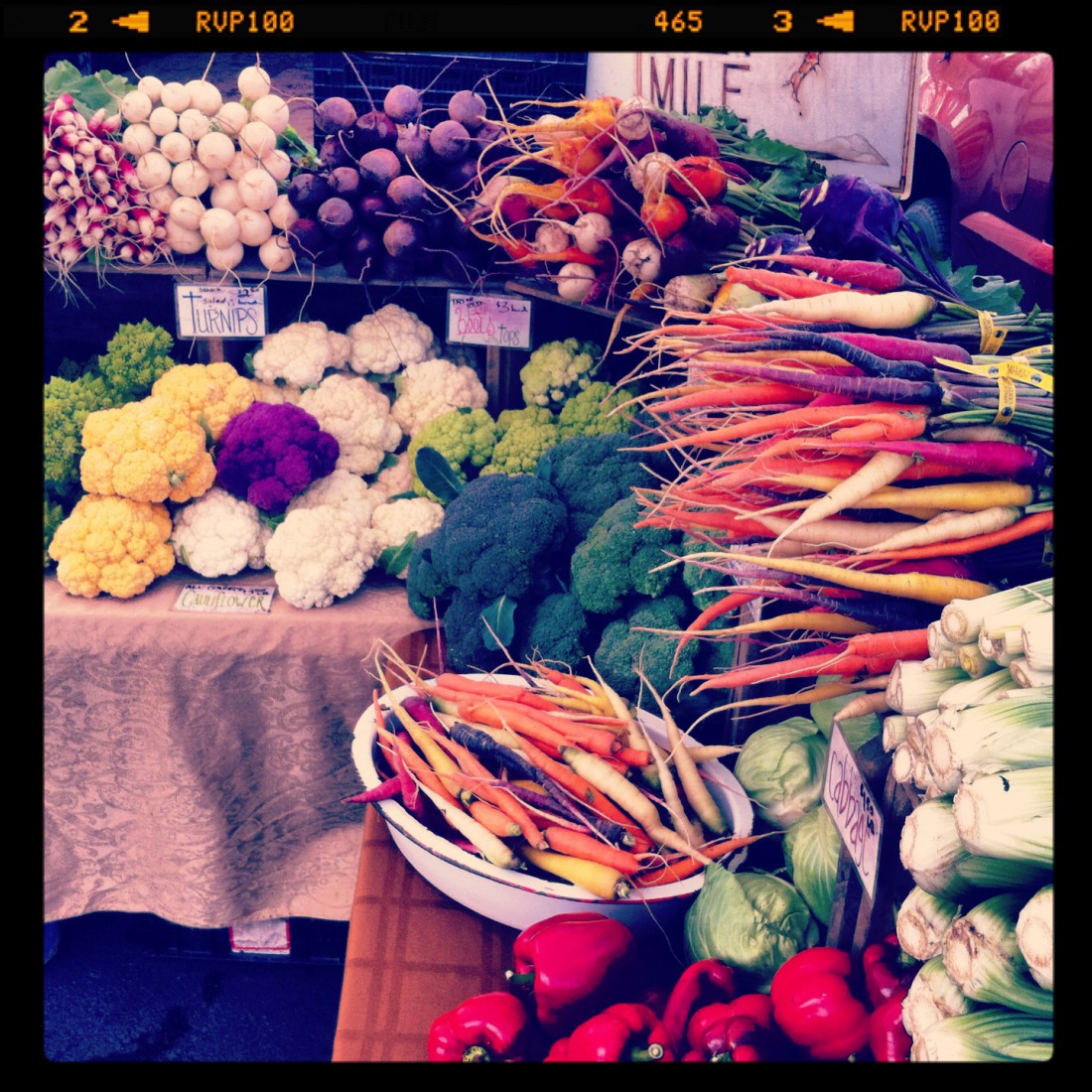The local food movement is big here in Asheville. Buying locally grown food each week is a great way to invest in the community, and a positive routine for your family’s health. As owners of Ten Mile Farm, a small farm that directly supplies food almost exclusively to our locals, we can attest to all of the wonderful love and support we get back from the community each week at our markets. We’ve been farming in Asheville for eight years now and have developed quite the customer base. We have made lots of amazing connections along the way.
But this year, we are ending the season at a crossroads. The leases on both parcels that we’ve been farming are up at the end of this year and we’ve got nowhere to farm next season.
My husband Kevin and I started Ten Mile Farm in 2005. We’d both been in Asheville for several years – he did landscaping, I did healing arts, and we both worked in restaurants. Kevin’s passion for growing food began when he interned on Keith’s Farm in New York back in 1999. Ever since that fateful season, he’s known that he wants to farm vegetables. My passion for plants stemmed from studying medicinal plants with Peggy Ellis at the local school that is now called Appalachia School of Holistic Herbalism.
Kevin and I got together in 2003 and our path led to the desire to start our own farm together. We started out small, on one leased acre in Candler, and slowly grew the business from there. Ten Mile Farm is now three and a half acres of production. We supply Asheville families and restaurants with farm fresh veggies from May through November each week at two farmers markets.
Our first challenge starting out as a small farm is stated directly in our name: Ten Mile Farm. We are commuter farmers, driving out each day to two separate pieces of leased land in Candler, ten miles from our home in Montford. It’s been a great experience for us, allowing us to learn from our mistakes at our own pace without the pressure of a large land payment. Aside from the obvious environmental challenges of not living there, we are limited in what items we can offer as a small farm. We can’t invest into any perennial crops like an orchard or berry bushes, because we don’t own the land. Having animals is out of the question, and the possibility of offering season extension with a winter CSA isn’t manageable if you don’t live on the farm. These are just some of the circumstances that mean that Ten Mile Farm is not yet what we hope to create.

We’ve learned so much about farming, and what works and doesn’t work for us, from this experience. From our friends and neighbors to the many chefs we see every week at market, we’ve cultivated a strong customer base whom we provide with over forty varieties of vegetables throughout the growing season. Our understanding of soil, water and seed grows stronger each year. We’ve reached a place where we are ready to expand our offerings, and we feel excited about the prospects.
So here we are: we have an entire working farm in our pockets, but no land to call our own. It’s an interesting feeling, knowing that we have a farm and nowhere to grow.
The real challenge for us in simply buying our own farm is the cost per acre. Land in the Asheville area is priced to develop, not to farm. There are no benefits to encourage owners to sell agricultural land at a lower price. A vital link is missing here in the mountains. We need to be able to connect farmland with farmers – it’s an essential part of our human ecosystem. We also need to preserve farmland for future generations. Other states (Maine, for example) have programs in place that are keeping farmland affordable and keeping farms farming.
There’s some good news -Asheville is starting a similar program, WNC Farmlink. It’s still in the incubation stage, but it’s a great first step to getting a dialogue started and making connections between old-time farmers and the next generation. We’ve also talked with Maggie Ullman, Chief Sustainability Officer for the City of Asheville. The City has a few prime farmland parcels in the area that could possibly be made available to beginner farmers, as a way to encourage food safety, small business and agriculture in the community.
This is new to the table, and has huge potential as an asset to farmers in the area. The Asheville City Council’s Gordon Smith is passionate about the city’s Food Action Plan, and we’ve planted the seed with Gordon – it’s imperative for all of us to be mindful of why we love it here in Western North Carolina, and to take action in preserving our diminishing farmland.
It’s exciting to see the community and the City of Asheville bringing these ideas to the table, with the goal of real changes in the way farmland is preserved. Ten Mile Farm is what it is today because two separate landowners gave us an opportunity to be beginning farmers. But Ten Mile doesn’t fall into the beginning farmer category anymore. We aren’t starting a farm – we’re succeeding at farming, and we want to do more! What we are looking for right now is a creative solution for our farm, and we are open to ideas.

We are certain of two things: we want to stay in the Asheville area, and we want to own our land – or at least have access to it for our lifetime, so that we are able to really invest all the love and attention a diversified farm needs. There are a lot of options: lifetime leases, someone to buy land with, owner financing, breaking new ground – we are ready and receptive!
And we know we are not alone. We can name three other small direct-market farmers in the area, growing local food for Asheville, who are also on leased land and experiencing similar uncertainty in their futures. We want to give you the best, nutritious, beautiful vegetables, to keep our community healthy and to contribute to the thriving culinary arts scene in Asheville.
We want to stay here and farm here, and to do that we need some soil to call our own. We are calling out to you, Asheville. We need a solution!
To stay updated on Ten Mile Farm‘s progress, visit their Facebook page. Owners Christina Carter and Kevin Toomey can be reached at tenmilefarm@gmail.com or 450-8883.




Pins and ball bearings have paved the way for a lot of inventions in various industrial equipment. During the manufacturing of a number of products and equipments, a large variety of parts are required. To make the friction smooth, bearings are used in them, especially in those places where the sliding and rotary movements are seen a lot. This helps in the smooth movements and lowers frictions.
Ray Ban Caravan Sunglasses http://masajshop.ro/reg/IB5GoAiIzz.html